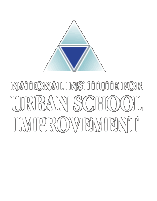
---

---

---

---

---

---

|
 |
 |
NIUSI
part of the Education Reform Networks
Commitment
-
About Four Ways to Increase Parental Efficacy?
When parents feel like they can make a positive difference in their children?s lives, they are said to have a high level of "efficacy". Parental efficacy is a belief in one?s skills, abilities and resources to parent effectively, including the ability to protect children from negative influences and improve the family?s school and community.Family School Linkages Project: Building Better Relationships Between School Personnel & the Families of their Students By Anne Stilwell & Dianne Ferguson.
-
About Homework and Families?
Family School Linkages Project: Building Better Relationships Between School Personnel & the Families of their Students By Dianne Ferguson & Anne Stilwell.Homework seems to have been part of school forever. Teachers assign it.
-
Celebrating Cultural and Linguistic Diversity in Head Start
Noting that the dramatic demographic changes in the United States in the last 30 years require that Head Start programs learn how to access new populations, encourage their participation, and tailor programs to meet their unique needs, this study was commissioned to better understand the diversity in language and culture of the Head Start population.
-
Deconstructing the Myths: A Research Agenda for American Indian Education (Albuquerque, New Mexico, April 14-15, 2000)
This report outlines a comprehensive research agenda for Indian education from the Native perspective. It resulted from a meeting held in Albuquerque, New Mexico in April 2000, planned by a national steering committee of Indian education researchers, administrators, and association executives.
-
Developing a Commitment to Multicultural Education
Investigated the kinds of lived experiences contributing to teachers' commitment to multicultural education and processes by which teachers became committed. Interviews and surveys involving K-12 and college teachers indicated that teachers developed commitment through various developmental life experiences.
-
In the Process of Becoming Multicultural: Reflections of a First Year Teacher
Discusses how although the author knew she only had meager training in teaching multicultural literature, she was committed to teaching it because she believes in its importance and influence on impressionable minds. Describes an incident where she was confronted with an anonymous note criticizing her teaching of African American Literature.
-
Journal of the Pennsylvania Counseling Association, 1999-2000
This document consists of the two issues making up volume 2 of "The Journal of the Pennsylvania Counseling Association." The articles attempt to meet the interests and needs of those in various counseling fields such as counselor education, mental health, career, rehabilitation, and community or school counseling.
-
Overrepresentation of bilingual and poor children in special education classes: A continuing problem.
Investigates factors affecting the overrepresentation of poor and bilingual children in special education classes. Lack of educator knowledge in language learning and association of bilingualism with disability; Poor educational policy in assessing of bilingual children; Influence of bilingualism on special education classroom.ABSTRACT FROM AUTHOR
Sufficient research has not been directed toward the effect of language and dialect on the placement of children in special education classes.
-
Placing "Diverse Voices" at the Center of Teacher Education A Pre-Service Teacher's Conception of "Educacion" and Appeal to Caring
Presents a case study of the way in which one preservice male teacher of color constructed his drama work with culturally diverse elementary school children. Identifies three key dimensions in his perspective on teaching that center around being a caring teacher who knows his students, balances motivation and discipline, and implements a "real" curriculum in a culturally affirming classroom environment.
-
Preparing Science Teachers for Diversity through Service Learning
Discusses challenges teachers face with learners from different backgrounds. Presents service learning as an alternative framework for teacher education with the potential for engaging teachers in an active construction of knowledge and development of connections between community and multicultural teaching practices.
-
Project Kaleidoscope, 1996-2000. Final Report: Executive Summary. Corp Author(s): George Mason Univ., Fairfax, VA. Helen A. Kellar Inst. for Human disAbilities. Publication: U.S.; Virginia; 2001-01-18 Description: 14 p
This final report describes the activities and outcomes of Project Kaleidoscope, a grant funded project designed to develop, field test, and disseminate training materials and methods to prepare personnel to better serve culturally, linguistically and developmentally diverse young children and their families.
-
Reflections on Multicultural Curriculum. Building Community through Global Problem Solving
Describes the importance of teaching students empathy for and understanding of cultural differences, explaining how to build community through shared responsibility in global problem solving. Three examples of this type of curricular exercise, which focus on nutrition, economic structures, and ecology, are presented.
-
Reflections on Multiculturalism in Developmental Education
Reports on an effort to better understand the impasse and create conditions for constructive local discussions and reforms relating to multiculturalism. Reports how a group of developmental education professionals in a large, interdisciplinary developmental education unit understand multiculturalism.
-
Staying the Course in Times of Change: Preparing Teachers for Language Minority Education
Describes how passage of Proposition 227, California's initiative restricting bilingual education, has influenced teacher preparation to authorize specialized instruction for limited English proficient students. The response to Proposition 227 by San Diego State University's College of Education is explored to illustrate the reaffirmation of a commitment to educational equity and ongoing program development to support multicultural teaching.
-
The Unity Project: Creating a Circle of Awareness
Research on school restructuring reveals the commitments and competencies that lead to improved outcomes for children, including careful attention to students' emotional development, professional development that emphasizing the reflective study of teaching, culturally responsive and inclusive teaching, and a focus on early language and literacy instruction.
-
Tools of Exclusion: Race, Disability, and (Re)segregated Education.
This article we explore the dynamic interplay between racism discrimination against someone based on perceived "ability”in the resistance to school desegregation and inclusion of students with disabilities in general education. In attending to the workings of power that connect these two histories, we show how racialized notions of ability functioned to uphold segregated schooling and justify the use of special education as a tool of racial resegregation.
-
What about Our Girls? Considering Gender Roles with "Shabanu."
Argues that the young adult novel "Shabanu" by Suzanne Fisher Staples is a book that can capture students' interest, allow them to experience a strong female protagonist, address social issues around the roles of women, and provide teachers with a rich resource for discussing and cultivating positive views toward women. (SR).
|
edreform.net
| | edreform.net
 |
|





